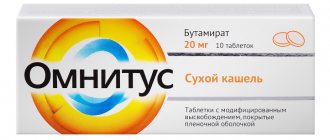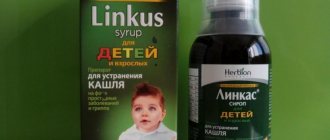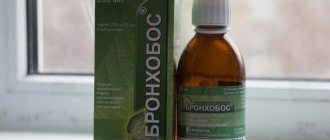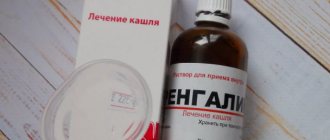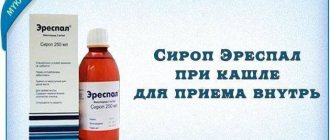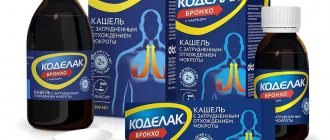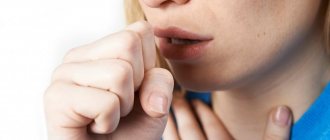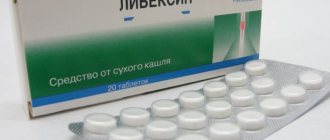Licorice (licorice, licorice) is a herbaceous plant, which, due to its many beneficial properties, is very popular in both folk and official medicine. Preparations made on its basis are most often prescribed for the treatment of diseases of the human respiratory system, the most famous among them is syrup from licorice (licorice) rhizome. The instructions for using licorice root syrup below explain the main points of using this product for various purposes.
The benefits of licorice in treating cough
Licorice root contains more than 12 substances that help the human immune system function. Licorice syrup is a natural product. Licorice contains a substance that helps fight various viruses. It's called glycyrrhizic acid.
Licorice syrup contains phytoestogen (female sex hormone). For women, licorice is a faithful friend if there are problems with the menstrual cycle, infertility and other pathologies of the reproductive system.
Licorice has a number of properties:
- expectorant;
- immunomodulatory;
- antispasmodic;
- antiviral.
The plant is also useful because of its properties and composition:
- Its decoction has a diuretic and laxative effect.
- Carbohydrates and glucose in licorice normalize water-salt metabolism in the body.
- The plant neutralizes harmful substances in the body, toxins, and prevents poisoning.
- The essential oils in the syrup soothe a red throat from coughing and relieve irritation.
- Bioflavonoids reduce pain.
- Adapogen helps the hormonal system and prevents it from being overloaded.
- Coumarin. Regulates the functioning of blood vessels. Acts as a sedative.
- Reduces cholesterol levels.
- Stimulates the functioning of internal organs.
- Increases immunity.
- Normalizes the functioning of the endocrine system.
- Helps overcome depression and improves mood.
Composition of the medicine
To prepare the syrup, licorice root (a plant from the genus Licorice) is used. The root contains glycyrrhizic acid and saponins (a substance with anti-allergic, anti-inflammatory effects).
Syrup based on licorice extract contains ascorbic acid and 27 flavonoids (substances that affect the functioning of enzymes in the body).
Full composition of Licorice syrup:
- Steroids (substances of animal or plant origin that have great biological activity).
- Ascorbic acid (vitamin).
- Calcium, iron, potassium, magnesium, manganese, zinc (minerals).
- Flavonoid (a compound that regulates the functioning of enzymes in the human body).
- Polysaccharides (polysaccharides perform functions in the body: energy, protective and storage).
- Starch.
Licorice cough syrup contains 4 g of licorice extract. The remaining 96 g is ethyl sugar solution.
Botanical characteristics
Perennial herbaceous plant. Grows on coastal pebbles, outcrops, foothills, old deposits, in small groups or singly.
The root is powerful, woody, and sweet in taste. Stem up to 1.2 m tall, weakly branched, glabrous. The leaves are petiolate, imparipinnate, with early falling lanceolate stipules and with 4-6 pairs of oblong-ovate leaflets with a wedge-shaped base and a short apex. The flowers are moth-like, up to 1 cm long, with a purple corolla and a calyx covered with pinpoint glands and scattered hairs, collected in an oblong inflorescence, up to 4 cm long, in the axils of the leaves. The fruit is a flat, elliptical shape with straight thin spines, a bean twisted into a dense spherical head, self-cracking when ripe. Blooms in July–August, bears fruit in September–October. Several species grow. All types have healing properties and can be used similarly for medicinal purposes.
Pharmacological properties
Licorice root has anti-inflammatory and antimicrobial effects:
- Has an expectorant effect on coughs. Glycyrrhizin in Licorice root is used to treat bronchial asthma. This substance facilitates expectoration. Glycyrrhizin activates immune system cells in the lungs. With weak muscles in the walls of the bronchi, licorice improves the passage of air.
- Glycyrrhizin can suppress the proliferation of viruses throughout the body. Licorice syrups are often prescribed for lichen, viral infections of the genitals or skin.
Licorice cough syrup has a number of positive effects on the body. - Licorice cough syrup has an antispasmodic effect (relieves pain that occurs due to muscle spasms).
Indications
Licorice cough syrup is used for various inflammatory diseases associated with the respiratory system. Typically, such diseases have a common symptom - cough.
Licorice syrup is used to treat:
- Asthma (inflammation of the bronchi due to allergies).
- Cough (dry and wet).
- Pneumonia (infection).
- Bronchitis (inflammation of the surface of the bronchi due to a virus, bacteria or bad habit).
- Bronchiectasis (rotting in the bronchi).
- Disturbances with lymphatic drainage.
- Diseases of the genitourinary system.
- Helps in the treatment of rheumatism.
- Helps in the fight against depression, anxiety, obsessive disorders and fatigue.
- Licorice tea helps aspiring singers improve their voice.
Contraindications
Licorice root is not suitable for everyone, so you should visit a doctor before using it.
It is strictly forbidden to use by people with the following diseases:
- Gastritis (inflammation of the stomach walls).
- Allergy to Licorice or other components in the syrup.
- Ulcer.
- Pregnancy.
- Glaucoma (eye disease).
- Kidney diseases.
- Diabetes.
- Reduced blood clotting.
Licorice syrup can cause uterine bleeding, so the drug is prohibited for pregnant and nursing mothers.
Indications
Licorice root syrup is the safest and most natural cough suppressant for children. Pediatricians very often prescribe it if the following diseases occur:
- bronchitis in acute and chronic forms;
- tracheitis of various etiologies;
- atelectasis caused by blockage of the bronchi with mucus plugs;
- bronchiectasis of the lungs;
- pneumonia of various nature;
- asthma, including bronchial asthma.
In addition to obvious pathological processes, such a drug is often prescribed in the context of sanitation of the bronchial tree in the preoperative period and for several days after the operation. This prevents possible bacterial complications of the condition, which can develop against the background of a violation of the integrity of the body and the general weakness of the patient’s defense mechanisms.
Instructions for use of cough syrup for children
The syrup can be used by children at least 1 year old. Licorice infusion contains a small amount of alcohol, which does not affect an adult, but can affect a child.
The drug copes gently with pulmonary infections and diseases:
- The syrup should be given to the child 3 times a day: after breakfast, lunch and dinner.
- The remedy is diluted in warm water.
- The child should drink plenty of fluids.
Syrup dosage for children by age:
- Children under 2 years of age are prescribed 2 drops per teaspoon of water.
- From 2 to 7 years: 3 to 10 drops in a teaspoon.
- From 7 to 13 years: 50 drops in 100 ml of water.
Before you start using licorice syrup, you must visit a doctor - this is a mandatory step in the treatment of cough in children.
Expert advice
Herbalist Natalya Davydova assures that treatment should always be approached comprehensively. Herbal medicine treats tests, the doctor notes, and the person as a whole. Natalya also writes about the benefits of licorice in her blog, and notes that it is better to buy raw materials from trusted suppliers or collect them yourself in the cleanest areas possible. At the same time, the doctor is advised not to bypass doctors, and not to be afraid to ask them about this or that herbal recipe.
Any treatment must be healthy and balanced. Do not take licorice if your diagnosis is on the list of contraindications. Do not “make up” recipes yourself unless you are a herbalist. Finally, don't skip routine checkups and monitor your health before you need to use a particular prescription.
Author of the article Katerina Ivanova : “While still studying at the university, I became interested in research work in the field of medical psychology. And for 15 years now, the topic of healthy lifestyle has interested me both as a researcher and as a supporter of a healthy lifestyle. Herbal medicine, proper nutrition (but not diets!), physical activity (physical therapy, cardio training, fitness), taking care of psychological health, active recreation - these are what I have in my life.”
Article read: 2,602
Side effects
The syrup has a negative effect on the heart, so you should take medications with licorice according to the instructions (dosage). Dry cough may cause temporary irritation and itching when taken.
The harm of Licorice is considerable:
- Severe itching and rash.
- High blood pressure (hypertension).
- Disruption of the menstrual cycle in women.
- Muscular paralysis.
- Heart rhythm failure.
- Potassium deficiency (hypokalemia).
- Licorice changes the water-salt balance in the body, which leads to edema. In extreme cases, toxicosis is possible.
- Licorice cough syrup can change hormonal levels, increasing the level of estrogen (female hormone).
Interaction
Licorice cough syrup can be used with all medications except:
- Diuretic (diuretic) drugs . When taking syrup and a diuretic, a large amount of potassium will be washed away from the body.
- Laxatives . Malt has a laxative effect, so if you use a laxative and syrup at the same time, you can get an enhanced effect. Intestinal disorders cannot be ruled out.
- Medicines for the heart . Just as with diuretics, due to the interaction of licorice root and heart medications, the amount of potassium excreted from the human body increases.
Reviews from real people
What do buyers think about licorice root?
Feedback on the forum
Review on the forum Review on the forum
Feedback on the forum
Feedback on the forum
Feedback on the forum
Feedback on the forum
There are many reviews and they are all positive.
Analogs
It is not always possible to be treated with licorice syrup due to many contraindications, but this remedy has equally effective analogues.
They are as follows:
- ACC.
- Coldrex Broncho.
- Linkas.
- Brohosan.
- Bioline Cold.
- Mustard plaster.
- Bisepol.
- Klacid.
- Pulmex.
- Fluifort.
- Erespal.
- Zitrolide.
- Codipront.
The above drugs have the same pharmaceutical effect as licorice root syrup.
But before use, you should carefully read the composition of the product and, if possible, discuss this with your doctor.
Coldrex Broncho
It is an expectorant. Quickly removes mucus from the lungs, reducing its viscosity. It has a gentle effect: it coats the throat with a glucose solution to prevent irritation.
Indications:
- Flu.
- Tracheitis.
- Bronchitis.
Dosage for adults (from 12 years): drink 10 ml of the product. Repeat the procedure after 3 hours. Dosage for children (from 2 to 12 years): drink 5 ml of medicine. Repeat after 2-3 hours.
ACC
The medicine has an expectorant effect. The product increases cell protection from re-inflammation. ACC relieves pain and reduces the frequency of exacerbations of diseases in people with chronic bronchitis. Take orally after meals. Dissolve 1 tablet in a glass of water. Drink the solution immediately.
Indications:
- Diseases of the respiratory system.
- Sinusitis (inflammation of the sinuses).
- Otitis (ear inflammation).
Dosage:
- People over 14 years old: take 200 mg, 2-3 times a day.
- From 7 to 14 years: 1 tablet, 3 times a day.
- From 2 to 7 years: 1 tablet, 2 times a day.
Side effect:
- Allergy.
- Dyspnea.
- Tachycardia.
- Abdominal pain.
- Stomatitis.
- Noise in ears.
Contraindications:
- Ulcer.
- Pregnancy.
- Breastfeeding period.
- Lactose intolerance.
- Allergy to the composition of the medicine.
Prices for syrup in pharmacies in Moscow, St. Petersburg, regions
The price of the medicine depends on the demand of the product, delivery costs and pharmacy markups. The price of the same drug varies not only in different regions, but also in areas of the same city.
The advantage of Licorice syrup is not only in the treatment of wet and dry coughs, but also in an affordable price for everyone.
The cost of medicine in different regions of the country:
| Region | average price |
| Moscow | 38 rub. |
| Saint Petersburg | 38 rub. |
| Altai region | 35 rub. |
| Republic of Tatarstan | 19 rub. |
| The Republic of Khakassia | 19 rub. |
| Krasnoyarsk region | 25 rub. |
| Krasnodar region | 20 rub. |
| Primorsky Krai | 20 rub. |
| Kamchatka Krai | 19 rub. |
| Khabarovsk region | 18 rub. |
| Tyva Republic | 21 rub. |
| Irkutsk region | 19 rub. |
The price rises closer to the western part of Russia. Moscow and St. Petersburg have the highest prices for licorice syrup. But regions further from the capital do not always have low prices. A pharmacy can increase the cost of goods, so all numbers are relative, but do not exceed 100 rubles.
Collection and preparation
The raw materials for preparations based on licorice are the rhizomes and roots of the plant. When collecting, the age of the licorice is taken into account. It must be at least 3-4 years old. The suitable root is brown with a yellow interior when broken. Harvesting depends on weather conditions. Starts in March and ends in November. The dug up roots are cleaned and damaged parts are removed. Large parts are slightly crushed and dried in the sun for 2 days. When drying in a dryer, the temperature is set to no more than 40 degrees. During the process, the raw materials are turned over to dry evenly and remove excess sand and soil. The finished root bends when bent and does not break. If all storage rules are followed, licorice can be stored for about 10 years. The popularity of licorice is declining, and many countries have included it in their Red Book. As recommendations, it was decided to streamline the preparations and introduce licorice glabra into the culture.
Doctors' recommendations for taking syrup
If a person tries licorice syrup for the first time, they should be observed by their doctor at this time, because unexpected allergic reactions may occur.
If there are no allergies or significant side effects, licorice root is suitable for the person and he can undergo a course of treatment:
- In no case should we forget about safety measures and the correct dosage of the medicine. Doctors advise using licorice root for people suffering from constipation or lung diseases. In rare cases, licorice is used to treat laryngitis and tracheitis. The medicine contains a lot of sugar, so people with diabetes should use it with caution.
- The medicine may be addictive. Another reason why you should not take licorice syrup for a long time is the high percentage of alcohol in the composition.
- It is forbidden to use by pregnant or nursing mothers. The doctor prescribes licorice syrup only if other medications do not help the woman.
Syrup of natural origin with licorice extract will quickly clear the airways of mucus, relieving a person from coughing. In addition, licorice has a disinfectant and immunomodulatory effect. This remedy works better than other drugs for wet and dry coughs, which is why the choice of many people is drugs that contain licorice.
Article design: Oleg Lozinsky
